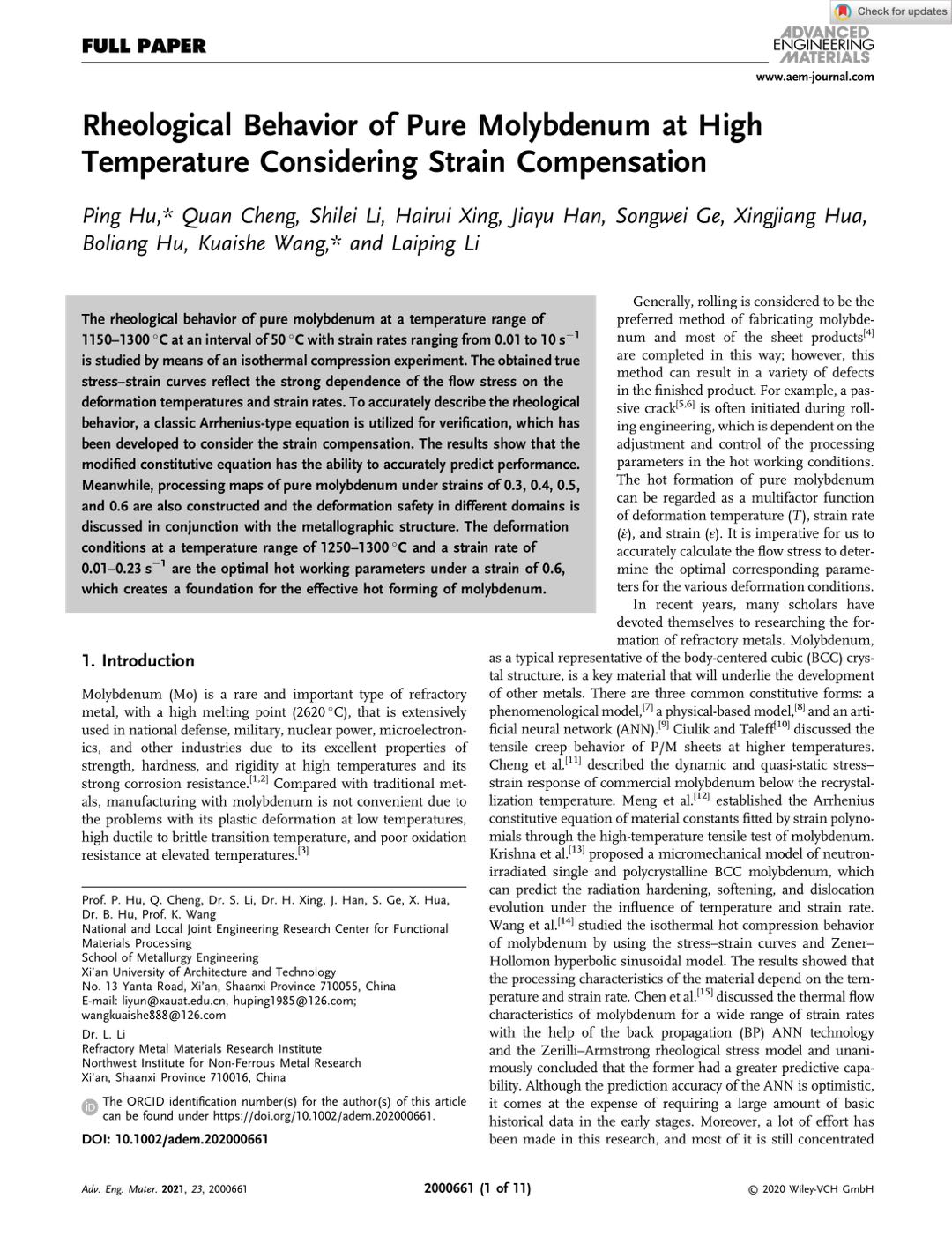The rheological behavior of pure molybdenum at a temperature range of 1150-1300 °C at an interval of 50 °C with strain rates ranging from 0.01 to 10 s-1 is studied by means of an isothermal compression experiment. The obtained true stress–strain curves reflect the strong dependence of the flow stress on the deformation temperatures and strain rates. To accurately describe the rheological behavior, a classic Arrhenius-type equation is utilized for verification, which has been developed to consider the strain compensation. The results show that the modified constitutive equation has the ability to accurately predict performance. Meanwhile, processing maps of pure molybdenum under strains of 0.3, 0.4, 0.5, and 0.6 are also constructed and the deformation safety in different domains is discussed in conjunction with the metallographic structure. The deformation conditions at a temperature range of 1250-1300 °C and a strain rate of 0.01-0.23 s-1 are the optimal hot working parameters under a strain of 0.6, which creates a foundation for the effective hot forming of molybdenum.
